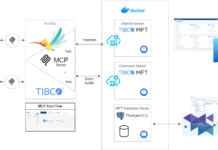Opher Etzion wrote an interesting blog responding to analyst Phil Howard, which in turn provoked another response by Rainer Ammon. Phil had commented that the recent developments in event processing pointed to a convergence with “BPM” (and – per his own prediction and with somewhat less evidence – Data Warehousing).
- Phil says:
…Then there was IBM’s acquisition of AptSoft in 2008, …with an emphasis on integration with business process management. And, of course, Oracle and TIBCO are doing much the same thing…
I cannot speak for Oracle (who AFAIK have continued to develop the BEA event server as a part of the Oracle EDA and BAM, not BPM, suite), but in TIBCO, CEP technology is considered an adjunct to BPM. Or course there are a number of patterns we see using CEP and BPM together, but in no way can TIBCO CEP be considered emphasising integation with TIBCO BPM. Indeed, more TIBCO customers use CEP together with SOA (AMX BusinessWorks) than with TIBCO BPM (iProcess or AMX BPM)… - Phil adds:
…So, the clear trend is towards integrating complex event processing with other types of process management, though these may not necessarily be with business process management per se…
So, what process management is not business process management? Indeed we do see “business processes” implemented using CEP: this is the event/pattern – decision – action cycle that CEP tools provide. Instead of “integrating with”, think “more agile or dynamic business processes”. And although events provide great integration mechanisms, the implication that CEP is a mere “supporting act” is not seen so much in practice. - Phil concludes:
Indeed, we will have to wait to see if complex event processing becomes completely subsumed into other technology areas and, if so, what new acronyms the industry can come up with: what is the acronym for a convergence of complex event processing and business process management?
Conveniently for Phil, Rainer has already coined “edBPM” for event driven BPM. - Opher gives the wise man’s response:
This is a similar situation to databases; database can be used for various reasons, and also be embedded with various other technologies and products…
Which makes perfect sense: CEP technology can be used standalone and in supporting roles, and different vendors will see different markets and focus different technologies for each… - Rainer adds a comment containing an interesting quote from a European solutions provider (who is not, AFAIK, working in the CEP space):
CEP a lot was indeed now written all over the world and spun very much, and unfortunately it is also an unusual amount of charlatanism… A machine for example runs with very continuous transitions through the phase space of their operating states. The prediction of a complex event would be in this case e.g. the simple need for maintenance, even for conditions that were never previously in this exact combination … Even this simple example could solved only in a combination of methods.
As it happens I have a nice successful CEP-based counterexample here.
From the last point, there is still seemingly a lot of education required for systems integrators and their architects and software designers – especially if they want to be involved in “charlatan event processing applications”! Luckily CEP vendors like TIBCO have partners folk who are more than happy to arrange webinars and talks about CEP and event processing to these folk. Just drop your TIBCO rep a line!





